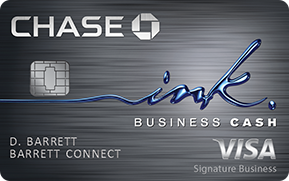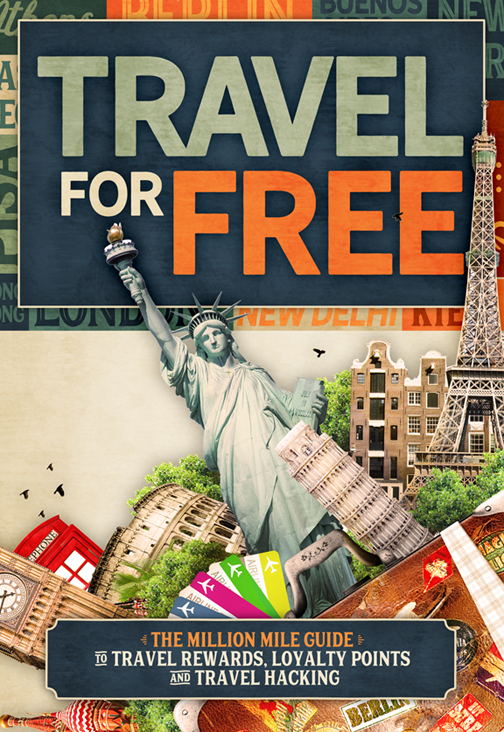
Glass Half Full
I returned a couple of weeks ago from a 2.5 week trip in Eastern Europe with a buddy of mine. My friend is very new to international travel, but saw the power of points during our trip. We had lounge access in every airport that we visited, stayed in elite hotels, and flew first class on Lufthansa. From that trip, my friend had a desire to step further into the points world. He asked me what the best rewards card was right now. For me it’s the Chase Ink Cash.
The Chase Ink Cash is a no annual fee business card that earns 5x on just about everything most people normally buy. It also has (negative cost) manufactured spend possibilities via special gift card promotions throughout the year. The sign-up bonus was, and still is, at an all time high of 50,000 Ultimate Rewards points. The Chase Ink Cash is basically a 175,000+ point card in the first year ($25,000 spend at 5x plus the 50,000 sign-up bonus, plus the $3,000 minimum spend). Each year after that the card should bring in another 125,000+ Ultimate Rewards, all with no annual fee.
There were a couple of issues with this card though. The first was that there have been rumors that the card were being discontinued. The second issue is that it’s a business card, and my friend didn’t technically “have” a business, or at least one that was registered.

Swing and A Miss
My friend has bought and sold automotive parts (mostly corvette racing parts) online for years. He has a heavily modified corvette that he races in the summer and is an elite automotive mind. I suggested that he use that buying and selling as a business, even though he had not registered any anything with it formally with the state or IRS. His credit score was roughly 730, was well under 5/24, and had other positive application history and information. He filled out the Chase Ink Cash application, listed the business as having been opened for 8 years, and used his social security number in place of the EIN/tax ID number. He submitted the application, and was denied.
I was a little surprised at the denial as he did have a Chase Sapphire Preferred for the past 2+ years, so his relationship with Chase is established. I recommended that he call reconsideration and find out more information about the decline. On the reconsideration call he was told that the bank couldn’t find record of his business anywhere and without proof, they didn’t consider it a real business. They asked for documentation, like tax records or a business filing, to prove that his business was legitimate. I told him to relay the message that his business was done mostly through Craigslist and online automotive resources, like Corvette Forum, so having paperwork for his business was difficult. I mentioned some other conversation pathways that might be helpful too, but in the end, it was his first reconsideration call.
The next day he registered his business for free on the IRS’ website. He was granted an EIN number that he submitted to Chase during his call shortly after. His application is now in pending status and he was told that a decision would follow within the next 5-7 business days. For those interested in applying for Chase Ink cards, FrequentMiler has a nice post on that process.
Should You Register a Business?
Approvals of personal and business cards are tightening up. Last week, the news that Amex has added a qualification-check into the credit card application and approval process is yet another bank step against points enthusiasts and credit card churners. As bank rules and restrictions tighten, bank rewards credit cards are becoming much more significant to the points earning process.
Business rewards credit cards:
- Aren’t reported (with few exceptions) to credit bureau agencies, personal cards are
- Are usually excluded from Chase’s 5/24 rule
- Are a great source for additional points for general and category spend
- Have better sign-up bonuses than most personal cards
- Have greater leniency for spend than personal cards, especially charge cards
Just having a registered business isn’t a guarantee that you’ll be approved for business rewards cards, but it should improve your chances. Once a business is registered, the longer the life of the business, the more powerful it looks on a credit card application. The downside is a that a bank may ask for financial records or other proof of your business.
For whatever reason, if you don’t take the free route to register a business with the IRS, I think that it’s actually worth paying the $100 – $175 fee to register with your state government. At least in my state, there isn’t a fee to renew the business as long as you remember to renew (online) every year. With that said, you would incur the initial registration fee avoid extra costs after that. In my opinion, the future rewards that could be earned through having a good business rewards card are much greater compared to the out of pocket costs for registering the business. In addition, the business registration fee is a tax deductible expense.
Summary
If you resell, have an existing non-registered business, have something that could be considered a business, or have an idea that could work as a business, I’d recommend actually registering to get a tax ID/EIN number. Paying a fee to register a business in hopes of increasing chances for business rewards card approvals might seem over the top, but I see it more as an evolutionary path in travel hacking. Creating a free online website linked with your business might be another idea and positive application influence too.
Update 6/26/18 – My friend’s application for the Chase Ink Cash was approved. He just received his card in the mail and is ready to go. His new (free) EIN made the difference in his application.

